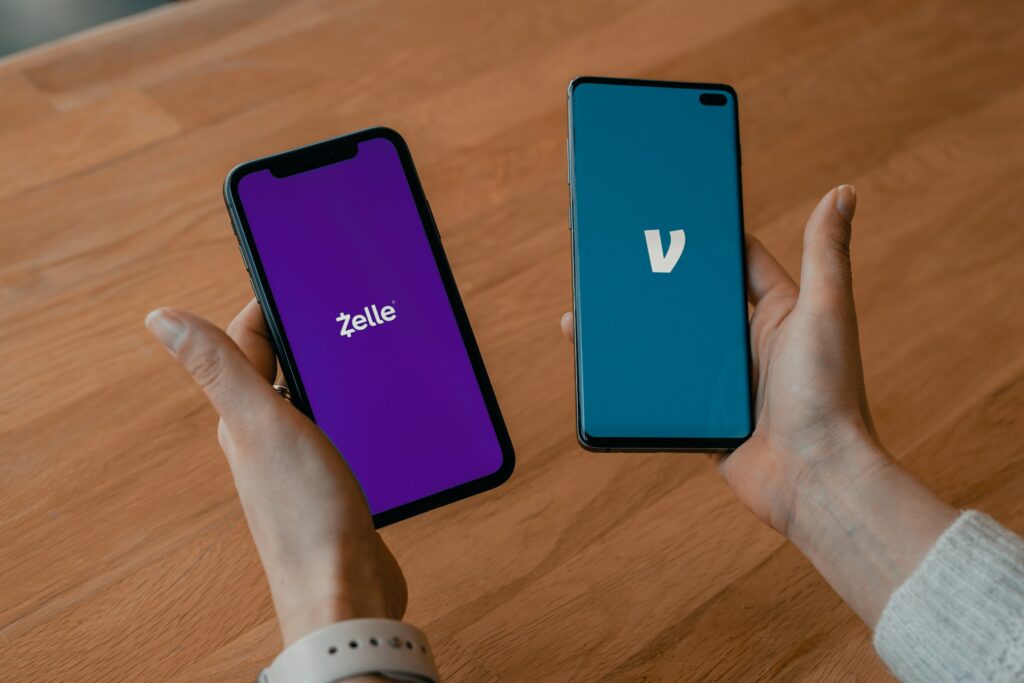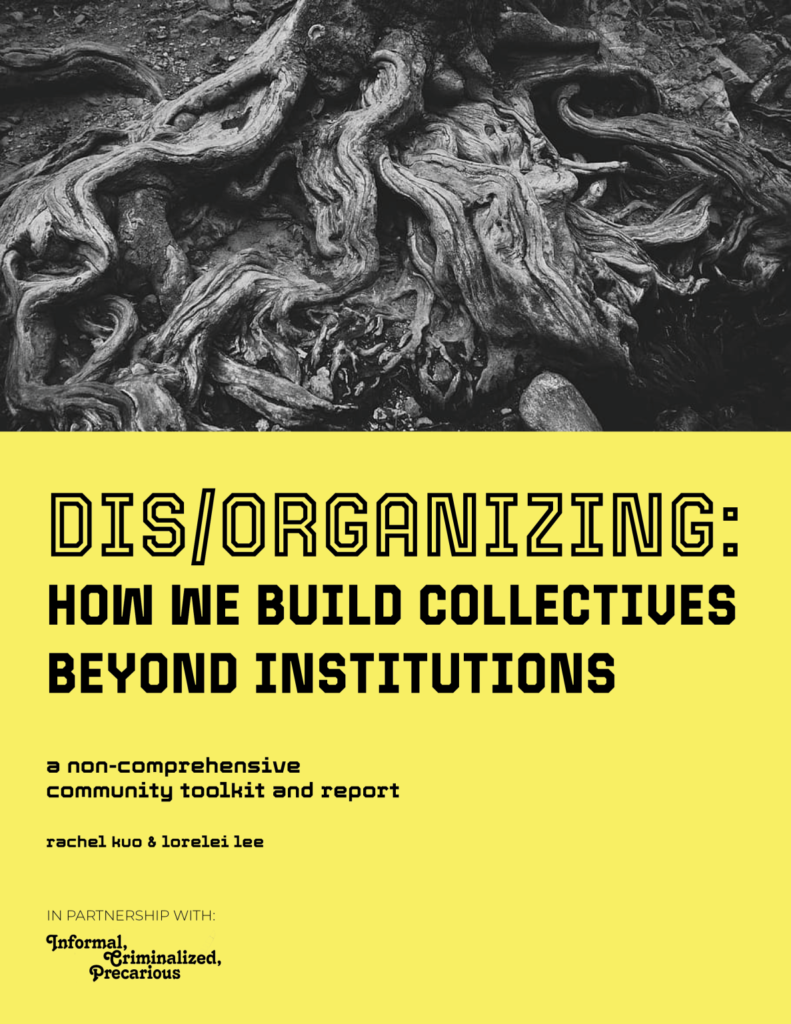Resisting Bureaucracies: Reflections on Community Engagement and Digital Technology
Resisting Bureaucracies: Reflections on Community Engagement and Digital Technology
In social movement research, community-based and participatory collaborations are necessary for coproducing knowledge that can contribute to social change, as well as for facilitating processes of redistributing resources and expertise. Ideally, these partnerships are mutually generative. In practice, these partnerships can be tricky to navigate and can reproduce harmful dynamics given the complex, contentious, and often extractive relationships that universities and nonprofit research institutions have with activists, grassroots organizations, and political collectives.
This essay outlines some challenges and recommendations for researchers within academic institutions and research centers conducting community-based research in digital environments. Community-based research is a participatory process that brings together members of a self-defined community and/or representative organization to coproduce a research design and process, mutually share expertise, and cocreate useful outcomes and tools. In addition to community organizing using different digital tools (e.g., social media and crowdfunding platforms), research collaboration also relies on digital applications, including video conferencing, group communication and messaging platforms, email, and cloud storage systems.
The recommendations presented here reflect the ways that individual researchers may often move between and work across different political collectives and groups and participate politically beyond their institutional affiliation. These lessons emerge primarily from working in collaboration with small independent political groups, organizations, and collectives, such as mutual aid networks and worker collectives and cooperatives.
For groups and collectives seeking access to resources (e.g., grant funding for paying organizers) for building longer-term sustainability, they may need to find fiscal sponsorship, formalize their status as a 501c3, or gain access to a recognizable organizational or institutional affiliation.
While some of these smaller groups may have 501c3 status with paid staff, most are volunteer-based, underfunded, and under-resourced. For groups and collectives seeking access to resources (e.g., grant funding for paying organizers) for building longer-term sustainability, they may need to find fiscal sponsorship, formalize their status as a 501c3, or gain access to a recognizable organizational or institutional affiliation. This means they may be forced to incorporate more bureaucratic governance structures or work with institutions, like financial institutions or universities, that have also created and upheld barriers to resource access.
Even as researchers try to facilitate access to resources or contribute to organizing processes in knowledge production, this can end up playing a role in bureaucratization and institutionalization or create new complications.
This is by no means a guide to being a perfect collaborator or partner, but a provocation towards flexibility, creativity, and reflexivity in the research process. Community-based research is difficult, and, as people, we can mess up and we can disappoint. However, we can also commit to better upholding community relationships and priorities as well as engaging in research practices that can ameliorate and counter institutional harms.
Working with Informal and Precarious Organizations
The formation of political collectives during crises is not a new phenomenon.[1]Dean Spade, Mutual Aid: Building Solidarity During This Crisis (and the Next) (Verso Books, 2020). For example, informal workers—workers forced out of formal economies (e.g., sex workers, street vendors, gig workers, etc.)—often create their own collectives and networks to mobilize and share resources in the absence of formal institutional infrastructures. These collectives themselves can also be informal, in that they don’t have a designated organizational status and that relationships within organizations are not determined by a formal structure.
How do we make collective decisions when people are too busy or too burned out to meet?
When groups are catalyzed to come together quickly by moments of heightened urgency, the necessary internal structures and processes for sustaining and maintaining collective and group formation can be left unclear. How to work together—decision-making, labor distribution, and information sharing—might be less defined. How do we bring new people in? How do we make collective decisions when people are too busy or too burned out to meet? Who can access the digital archive of data, knowledge, and materials if a group dissolves? What happens to the remaining money? At times, these internal processes may not get discussed until moments of conflict and harm, burnout and exhaustion, or disagreement.[2]Rachel Kuo, Mon Mohapatra, and Rigoberto Guzmán, “Lateral Violences: Speculating Exit Strategies within Movements (a Concept Note),” ACM Interactions 28, no. 6 (November–December 2021).
In other words, organizational informality can also mean navigating ongoing organizational precarity. The long-term sustainability of groups and collectives often remains uncertain and unpredictable, including access to material and financial resources; time, capacity, and energy of individual members; as well as shared visions for future directions. This might mean that collaborators may leave collectives; groups might disappear or transform; or the scope of work might suddenly shift course.
The tethering of resources to institutional structures, such as NGOs,[3]INCITE! Women of Color Against Violence, The Revolution Will Not Be Funded: Beyond the Non-Profit Industrial Complex (Durham, NC: Duke University Press, 2017). can constrain the imagination of organizing structures and freeze movement growth through bureaucratization. In an interview, one organizer working with a mutual aid fund reflects on the shift in their organizing practice after becoming fiscally sponsored: “I’ve become an accountant and that’s just part of the work.”
Research processes can be helpful for cocreating knowledge-sharing networks for building out long-term strategies; evaluating current organizing processes; or learning from member perspectives—and institutional partnerships with universities and research centers can offer material support through funding, labor, technology, and time. (For example, even access to a licensed Zoom account via someone’s university affiliation for hosting meetings is helpful.) However, bringing informal and precarious organization into these partnerships requires critical reflections on what this may entail around collective safety, consent, and access.
Technological Challenges and the Hierarchies of Bureaucracy
In our current technological landscape, the internal structures of informal collectives are often held together by digital tools, including text threads, collaborative docs and spreadsheets, financial applications, cloud storage, and project management tools, among others. While these digital tools might create some ease and efficiency in meeting the scale and scope of organizing work, they can also replicate some of the very same structures of inequity that these groups struggle against.
For example, digital crowdfunding platforms for social good like GoFundMe and financial apps like Venmo and CashApp might make receiving resources more accessible and setting up a mutual aid fund easier, but digital payments can come with increased public and government scrutiny. During research interviews, multiple groups described relying on people with income security and access to formal employment; the cultural capital to “class pass” (the ability to be perceived as having middle- or upper-class status); and expertise in navigating bureaucratic systems to be responsible for money management, which may replicate exclusive structures of power and socioeconomic access.

This same dynamic is replicated when it comes to who can dedicate more labor to organizing. On the one hand, most people in smaller groups often don’t get paid for organizing or activism work and also struggle with uneven distributions of labor. One person shares the difficulty of managing a mutual aid fund, “It’s been hard to have boundaries around time for the fund. This has become more of a job than I ever wanted it to be.”
On the other hand, organizers reflected that the different relationships people have with money and their material needs and circumstances can also create conflicts due to feelings of resentment or guilt. For example, one organizer in a migrant worker collective shares, “All of our organizing is done volunteer—and certain work gets small stipends. [But] there’s a hesitancy in wanting to get paid for organizing work and that’s been challenging.”
Tax liability may also have consequences for organizational structure. Groups may be forced to incorporate and formalize into institutional systems by applying for 501c3 status or acquiring fiscal sponsorship. These modes of formalization then increase work around getting invoices and receiving reimbursements while groups also try to quickly distribute money to people who may not be able to sign forms or use legal names. This also has implications for researchers seeking to compensate community partners for time and labor given institutional processes of disbursement.
Additionally, digital communication practices normalized into everyday use that emerge from professional spaces, such as scheduling and calendars or the uses of Slack or Google Workspace for collaboration, can also create barriers and exclusions to access and participation, such as for those without consistent access to Wi-Fi or a laptop and smartphone.
Assumptions about digital risk, security, and privacy often presume individual control and access to technology.
Finally, university research boards may have rules about what platforms can or cannot be used for data protection and privacy (often tied to existing tech contracts with either Google or Microsoft). While this can safeguard information, it can also hinder partnership and collaboration. Assumptions about digital risk, security, and privacy often presume individual control and access to technology.
One organizer for sex workers and workers in street economies reflects that many of their members share phones, use old or glitchy phones, and/or don’t have regular access to a single phone number or device, “For our members, they have no control over what other people do with their phones. There’s no expectation of control…People don’t expect privacy and people don’t gain fluency in those systems. When we construct advocacy spaces that have high security and privacy infrastructure, they are hard for us to get into, even though it might seem easy to you.”
In short, while digital technologies may make some things easier for some, they can also introduce and exacerbate problems of uneven access and participation.
Recommendations for Community-Based Research Partnerships
As more universities and research centers seek to build infrastructural support for public and community engagement as well as create research agendas focused on new technologies, existing structural rigidity within institutions can pose challenges. Below are some suggestions for building more equitable and accessible community research partnerships in our current digital environment.
Focus on Process before Output
Different community groups may be wary of academic partnerships (for good reason) due to historical and ongoing forms of extraction and co-optation while also seeking access to institutional resources. Relationships have to come first before the research. This takes time and shifting priorities can also change the scope of research. For example, any research partnership requires adaptability in methodology given how burned out community groups can be, especially when they are under-resourced while also facing relentless rapid-response crises.
Building a rapport also might mean destabilizing norms around what constitutes research activity and knowledge production.
Building a rapport also might mean destabilizing norms around what constitutes research activity and knowledge production. For example, rather than walling off information-gathering processes (where findings often get reported at the end of a project and community members are often sources of data), one of the things we did was connect the research process to a public-facing conference (and archive transcripts and recordings) as a way to make knowledge production and sharing more accessible. The conference highlighted informal, criminalized, and precarious labor that centered sex worker organizers. We also monetarily supported people for their time in skill-building and preparation for public storytelling, especially as some community members and organizers have had fewer public speaking opportunities but held deep expertise through their lived experiences and analysis. We then convened (and compensated) organizers to participate in closed discussion and reflection sessions following the conference.
In this process, we also navigated the various technical and administrative processes behind creating more accessible knowledge-sharing spaces, such as: navigating Zoom webinar settings; finding and compensating captioners and language translation; collecting and filing paperwork across different universities for payments; communicating across multiple formats and mediums to reach people with different degrees of tech access; being attentive and practicing care around different relational dynamics and conflicts between participants; and advocating for higher speaker honoraria or money for speakers’ and participants’ caretaking needs. These are also examples of care work in the research process. The coordination behind relationship-building and maintenance rarely gets highlighted, but they are significant aspects of the research process.
Read more about collaborative and public-facing methods for knowledge production in the open archive of the Informal, Criminalized, and Precarious conference.
Advocate for Multiple Forms of Payments
If universities and research centers are going to emphasize diversity and equity in knowledge production and public engagement as a core value, then compensating community partners for their time and expertise (whether that’s participating in an interview, speaking at a university or conference event, or cocreating a research project) must be a baseline practice. As a feminist practice, smaller acts of appreciation and gratitude without monetary compensation, such as providing food, have long been core to qualitative research as a relational process. However, there’s also a broader call to be made here for institutional change that needs to happen, such as what funding lines are made available, how, and to whom.
While material support for community-based research is absolutely necessary, navigating existing institutional processes and university and funder infrastructures for paying both research participants and community collaborators can be challenging. Though institutional documentation and reporting are required for accountability, current forms of documenting funds transfers (e.g., W9 forms, IDs, PDFs, signatures, etc.) can be difficult to navigate given differential technological access and understanding of bureaucratic structures.
Creating alternative processes for accountability can afford flexibility to both researchers and community partners while also meeting necessary requirements on how funds are being appropriated and used.
Community members experiencing multiple forms of precarity may not want to have a documented relationship with a university or institution or may find that accepting payment may negatively impact other forms of social support. For example, receiving institutional payment through a W9 may put their unemployment assistance at risk. Having cash and digital payment options (e.g., Venmo, Paypal, and Cashapp), as well as multiple options for documentation (e.g., anonymized screenshots and email receipts), lowers access barriers for all participants (e.g., across different informal economies, uses of technologies, and immigration statuses). Creating alternative processes for accountability can afford flexibility to both researchers and community partners while also meeting necessary requirements on how funds are being appropriated and used.
Listen to Chibundo Egwuatu (University of Illinois at Urbana-Champaign) talk about Informal, Criminalized, and Precarious during the Decoding Stigma panel.
Unlearn Norms around Technology and Communication
As mentioned earlier, our norms around technology use are often tied to professional practices and linked to social and cultural capital, such as norms around digital “etiquette” or presumptions of technological fluency and access. For example, a lot of assumptions of how we collaborate replicate office culture and prioritize writing as a skill, whether that’s email or text and discussion threads. We can think more creatively about what communication and technological tools and practices we rely on to build collective access in partnerships and collaboration.
Some of this might be using phone calls, letters, and other mediums beyond email, especially for collaborators without regular access to phones or computers or who may be cut off from digital communication. Additionally, it requires approaches that combine preparation, consistency, and spontaneity, such as planning ahead for glitches and technological failure. We can also build in time and effort for multidirectional skill-sharing and training, such as downloading particular apps or setting up accessibility and language features. This in turn also facilitates access to resources and relationships, such as connections to funders and other organizers.
Listen to Naomi Lauren (Whose Corner Is It Anyway) talk about class and technology access during the Sex Worker Activism panel.

There is a lot to say about universities, private foundations, and nongovernment institutions as sites of harm. The Dis/Organizing Toolkit points to both ways that institutionalization can subsume movements’ bureaucratic governance and ways that movements disorganize harmful systems and structures. This begs the following questions: why should these partnerships exist in the first place and why not divest and redistribute fully back into communities without an institutional mediator? The recommendations presented here reflect a current reality of the ways movement politics and different institutional systems are imbricated and best practices for navigating this.
Acknowledgements
Thank you to Lorelei Lee for building this research process together. Deep gratitude to Danielle Blunt, Naomi Lauren, Zahra Stardust, TD Tso, Kate Zen, the Disabled Sex Workers’ Coalition, and Hacking//Hustling for guidance and support. Also, appreciation for the time and contributions of the BIPOC Adult Industry Collective, Lysistrata, Red Canary Song, Whose Corner Is It Anyway, California Healthy Nail Salon Collaborative, and Street Vendors Project, among others.
Footnotes
| ↑1 | Dean Spade, Mutual Aid: Building Solidarity During This Crisis (and the Next) (Verso Books, 2020). |
|---|---|
| ↑2 | Rachel Kuo, Mon Mohapatra, and Rigoberto Guzmán, “Lateral Violences: Speculating Exit Strategies within Movements (a Concept Note),” ACM Interactions 28, no. 6 (November–December 2021). |
| ↑3 | INCITE! Women of Color Against Violence, The Revolution Will Not Be Funded: Beyond the Non-Profit Industrial Complex (Durham, NC: Duke University Press, 2017). |




